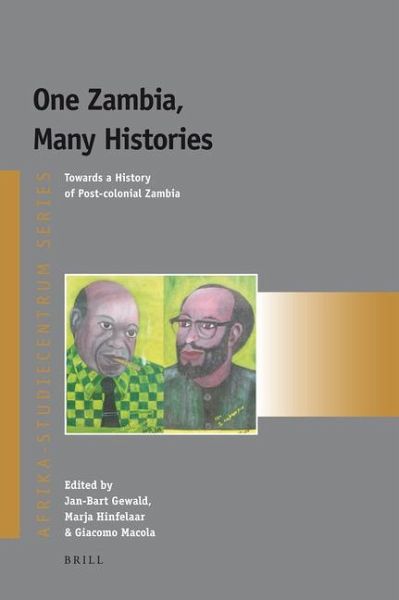Nicht lieferbar

One Zambia, Many Histories
Towards a History of Post-Colonial Zambia
Herausgeber: Gewald, Jan-Bart; Hinfelaar, Marja
Versandkostenfrei!
Nicht lieferbar
In contrast to the rich tradition of academic analysis and understanding of the pre-colonial and colonial history of Zambia, the countrya (TM)s post-colonial trajectory has been all but ignored by historians. The assumptions of developmentalism, the cultural hegemony of the United National Independence Partya (TM)s orthodoxy and its conflation with national interests, and a narrow focus on Zambiaa (TM)s diplomatic role in Southern African affairs, have all contributed to a dearth of studies centring on the diverse lived experiences of Zambians. Inspired by an international conference held in L...
In contrast to the rich tradition of academic analysis and understanding of the pre-colonial and colonial history of Zambia, the countrya (TM)s post-colonial trajectory has been all but ignored by historians. The assumptions of developmentalism, the cultural hegemony of the United National Independence Partya (TM)s orthodoxy and its conflation with national interests, and a narrow focus on Zambiaa (TM)s diplomatic role in Southern African affairs, have all contributed to a dearth of studies centring on the diverse lived experiences of Zambians. Inspired by an international conference held in Lusaka in August 2005, and presenting a broad range of essays on different aspects of Zambiaa (TM)s post-colonial experience, this collection seeks to lay the foundations for a future process of sustained scholarly enquiry into the countrya (TM)s most recent past.



